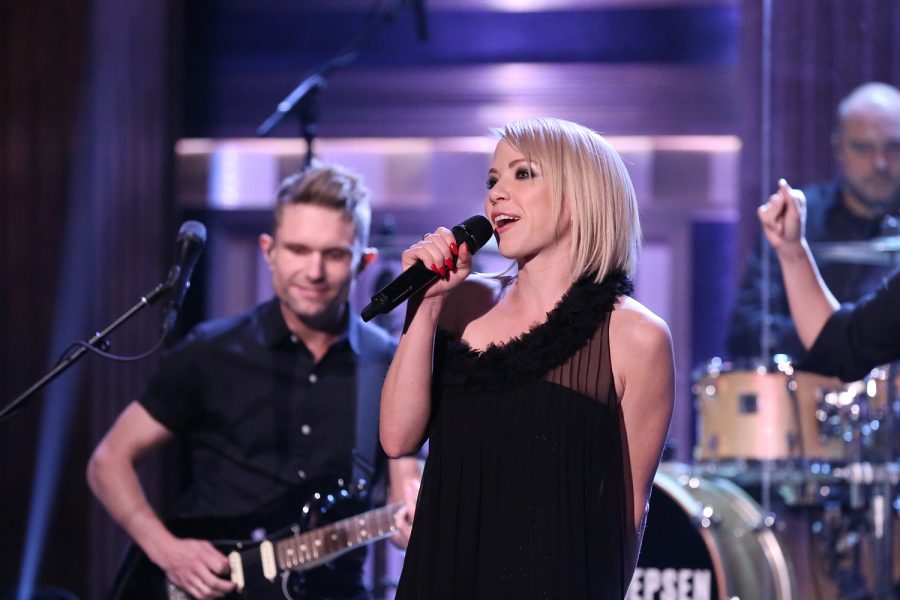Banerjee: Pop girls are riding on the main stage again
There is a new side of pop music that is veering into experimental and electronic, and women are taking it over.
NBCU Photo Bank via Getty Images
Carly Rae Jepsen on The Tonight Show with Jimmy Fallon on November 5, 2018 — (Andrew Lipovsky/NBC/NBCU Photo Bank via Getty Images/TNS)
June 17, 2019
The synthetic and auto-tuned femininity of such acts as Carly Rae Jepsen, Charli XCX, and Kim Petras are polarizing. Their sound returns to what worked in decades earlier, with tracks from Jepsen’s E•MO•TION compared with Prince. What works for these women is precisely what made some of them targets of attack in years earlier: kitschy but catchy sugar-sweet lyrics and aggressively artificial synths. But somehow, it works.
For Jepsen, who seemingly opened up much of the avenues for experimental pop divas to return to the stage, her new work doesn’t drastically differ from what she came to fame with: “Call Me Maybe.” The song was made fun of for years, and her name still holds that spite to some listeners. Her work in E•MO•TION or her new album, Dedicated, still holds on to those sounds — they’re deeply feminine, heartfelt, and sugary. But what sets them apart is the new attention to production and character.
Charli XCX came to fame in a SoundCloud and YouTube era. Her early work is incredible; it uses innovative, interesting production styles and methods and extends outside the breadth of most major production companies. Notably, her Vroom Vroom EP blends electronic and pop in ways that are almost unheard of in major circles. What sets her apart is how she incorporates these hard-core sounds into femininity. Vroom Vroom opens with harsh “Let’s Ride,” before moving into the first verse, emphasizing sisterhood above all else: “Lavender Lamborghini, roll up in a blue bikini / B*tches on the beaches, lookin’ super cute and freaky / All my friends are princesses, we keep it whipped and creamy / Ice cubes on our tongues, because we like to keep it freezy.” Charli XCX breathes a new life into a genre that can often get stale, stuck on familiar verses or production styles until all songs sound the same.
Petras takes femininity and overemphasizes it in each line until her words are indistinguishable from the highs and lows of womanhood — in all facets. “I Don’t Want It At All” screams “I want all my clothes designer / I want someone else to buy ’em.” Classic femininity isn’t villainized — it’s celebrated. Petras wants us to take what we can get unapologetically and enjoy it. Her recent song “Do Me” is as sex-positive as it is gender-positive — women of all types are celebrated, and so are their bodies.
Each of the women highlighted take music to a new direction, rearranging what we are conventionally used to hearing and the ways in which we receive them. Instead of being forced out of “conventional femininity,” they’re embracing what they are usually mocked for and rebirthing it.
Jepsen turns a career that was mocked into a girlish one-hit wonder into a deeply well thought-out and executed career, with albums landing well with prestigious publications while never diverting from focusing on what she wants to say. Charli XCX turns sounds that are not conventionally considered feminine — harsh electronic or EDM-influences — into something she feels comfortable within. Petras turns femininity on its head by simply leaning deeply into it, ensuring that no one can strip her from what defines her.
The new wave in pop-girl stardom allows a wider array of music to be “for” us. We are invited to experience and own music styles that have been historically put away from us or to retake styles that we have always had roots in but were mocked for enjoying or partaking in. Pop girls, let’s ride.



